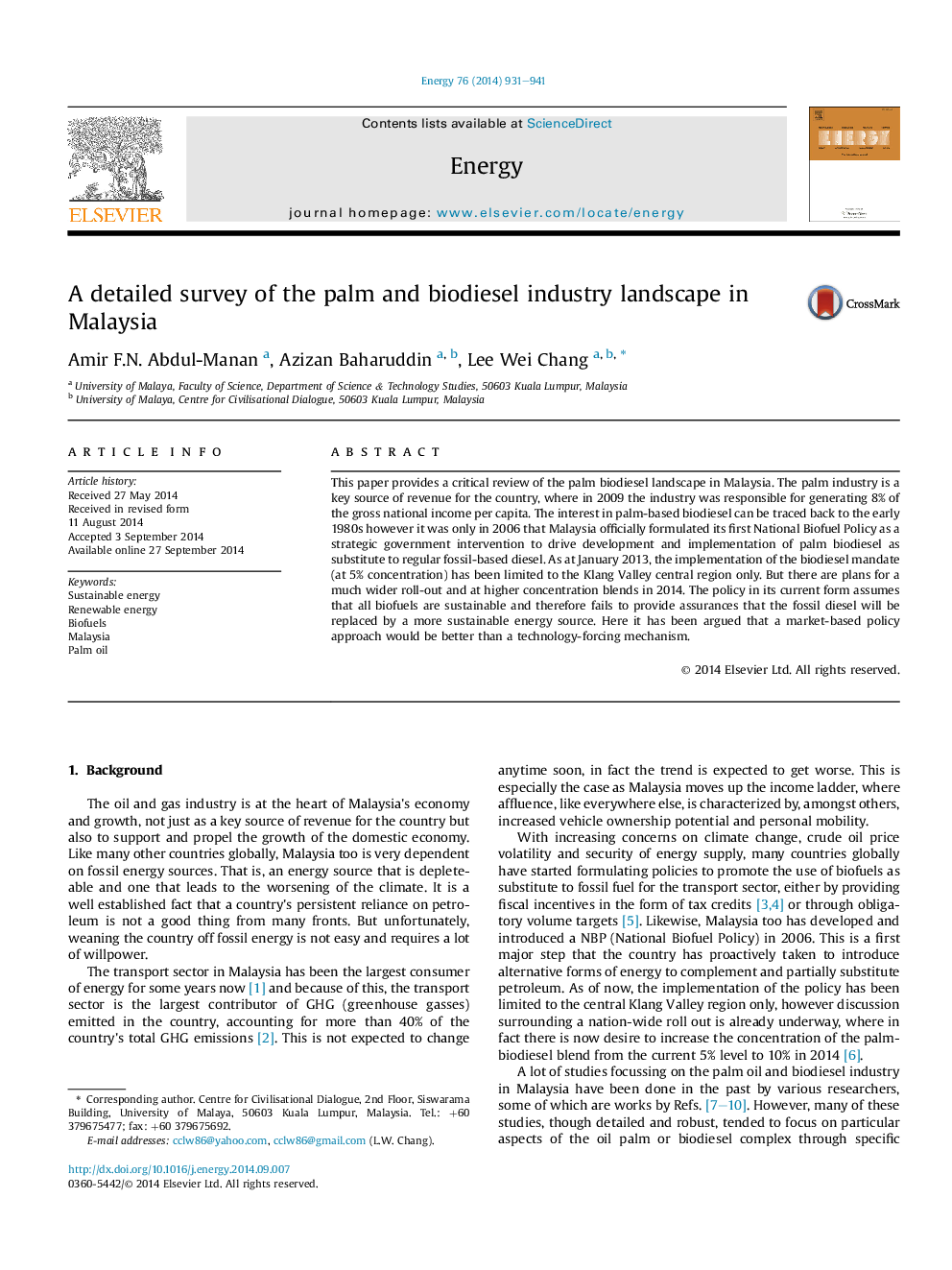| Article ID | Journal | Published Year | Pages | File Type |
|---|---|---|---|---|
| 8076937 | Energy | 2014 | 11 Pages |
Abstract
This paper provides a critical review of the palm biodiesel landscape in Malaysia. The palm industry is a key source of revenue for the country, where in 2009 the industry was responsible for generating 8% of the gross national income per capita. The interest in palm-based biodiesel can be traced back to the early 1980s however it was only in 2006 that Malaysia officially formulated its first National Biofuel Policy as a strategic government intervention to drive development and implementation of palm biodiesel as substitute to regular fossil-based diesel. As at January 2013, the implementation of the biodiesel mandate (at 5% concentration) has been limited to the Klang Valley central region only. But there are plans for a much wider roll-out and at higher concentration blends in 2014. The policy in its current form assumes that all biofuels are sustainable and therefore fails to provide assurances that the fossil diesel will be replaced by a more sustainable energy source. Here it has been argued that a market-based policy approach would be better than a technology-forcing mechanism.
Related Topics
Physical Sciences and Engineering
Energy
Energy (General)
Authors
Amir F.N. Abdul-Manan, Azizan Baharuddin, Lee Wei Chang,
